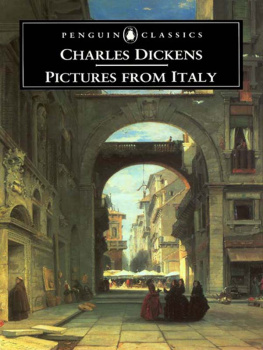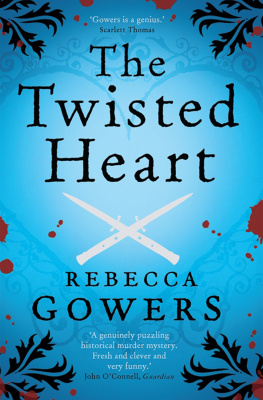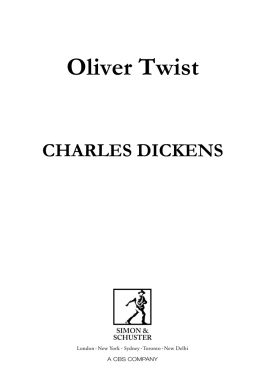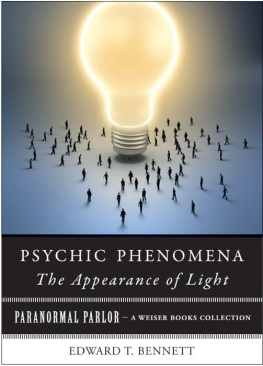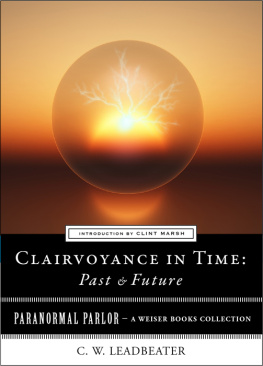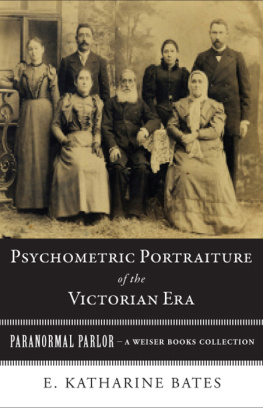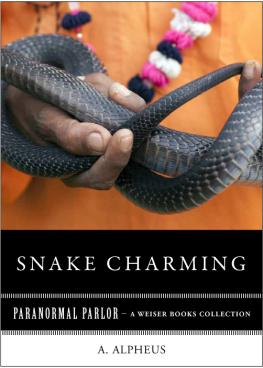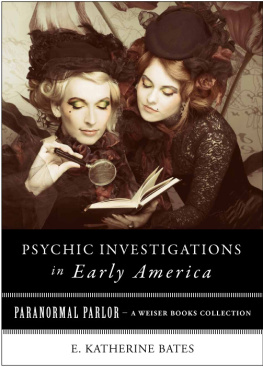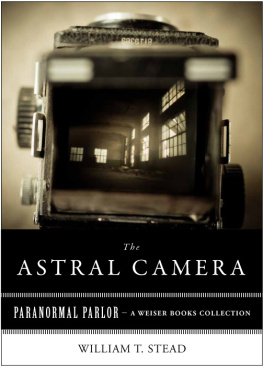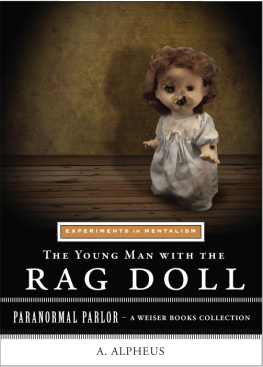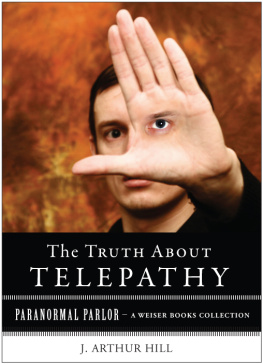This ebook edition first published in 2012 by Red Wheel/Weiser, LLC.
With offices at:
665 Third Street, Suite 400
San Francisco, CA 94107
www.redwheelweiser.com
Copyright 2012 by Red Wheel/Weiser LLC. All rights reserved.
Excerpted from Dickens, Charles. The Haunted House. All the Year Round Extra Christmas Issue 13 (December 1859).
eISBN: 978-1-61940-044-3
Cover design by Jim Warner
Contents
Dickens Fever Dreams
The Haunted House was published in an 1894 collection of three short stories by Charles Dickens, under the title Christmas Stories, which is where I stumbled upon it. But as I researched further, I found that the tale was first published in 1859 in All Year Round, a publication for which Dickens served as editor. This grouping contained a unique collection of stories under the same title, with Dickens writing the introductory and closing texts. The other stories were penned by writers of the time whom Dickens invited to contribute a tale of their own set within one of the many haunted rooms of his house.
In his introduction, Dickens sets the stage for the paranormal parlor games that the protagonist invites his friends to join in. An abandoned house with rooms featuring names such as The Picture Room and The Clock Room is inhabited by a skeptical man who invites each of his dearest friends and relatives to visit over the magical Twelfth Night of Christmas. It was often believed that the Twelfth Night of Christmas had a supernatural powernot unlike our current feeling for Halloween being a good time to communicate with those who have shuffled off this mortal coil.
He writes:
The understanding was established, that anyone who heard unusual noises in the night, and who wished to trace them, should knock at my door; lastly, that on Twelfth Night, the last night of holy Christmas, all our individual experiences since that then present hour of our coming together in the haunted house, should be brought to light for the good of all; and that we would hold our peace on the subject till then, unless on some remarkable provocation to break silence.
George Augustus Henry Sala was a Londoner by birth (1792), of whose early writing Charles Dickens became a fan. Dickens published both articles and stories by him, including this selection from The Haunted House. Sala later became a regular contributor to the Daily Telegraph, and his bombastic style helped set the tone of one of the most prestigious newspapers in the world. He was famous for having the most impressive library in London, having amassed a large collection of books so that he could write on virtually every subject. He died in 1828.
The Ghost in the Double Room is the third of eight tales covering the various rooms of the haunted house. Here you will meet the pathetic Ghost of the Ague. The ague (pronounced aygyoo) was a feverish disease (as well as the early term for malaria) that often claimed lives. It was hard to shake, just as this house cannot shake its ghosts.
Join me, once again, as we step into the paranormal parlor of Charles Dickens and George Sala, where we will dance with ghosts both literary and loved.
IN FREAKITUDE,
VARLA VENTURA
SAN FRANCISCO, 2012
The Ghost in the Double Room
The Ghost in the Double Room was the next Ghost on my list. I had noted the rooms down in the order in which they were drawn, and this was the order we were to follow. I invoked the Spectre of the Double Room, with the least possible delay, because we all observed John Herschel's wife to be much aifected, and we all refrained, as if by common consent, from glancing at one another. Alfred Starling, with the tact and good feeling which are never wanting in him, briskly responded to my call, and declared the Double Room to be haunted by the Ghost of the Ague.
What is the Ghost of the Ague like? asked every one, when there had been a laugh.
Like? said Alfred. Like the Ague.
What is the Ague like? asked somebody..
Don't you know? said Alfred. I'll tell you.
We had both, Tilly by which affectionate diminutive I mean my adored Matilda and your humble servant, agreed that it was not only inexpedient, but in the highest degree contrary to the duty we owed to the community at large, to wait any longer. I had a hundred arguments to bring forward against the baleful effects of long engagements; and Tilly began to quote poetry of a morbid tendency. Our parents and guardians entertained different opinions. My uncle Bonsor wanted us to wait till the shares in the Caerlyon-upon-Usk Something or Other Company, in which undertaking I was vicariously interested, were at a premium they have been at a hopeless discount for years. Tilly's papa and mamma called Tilly a girl and self a boy, when we were nothing whatsoever of the kind, and only the most ardent and faithful pair of young lovers that had existed since the time of Abelard and Heloise, or Florio and Biancafiore. As, however, our parents and guardians were not made of adamant or Roman cement, we were not permitted to add another couple to the catalogue of historically unfortunate lovers. Uncle Bonsor and Mr. and Mrs. Captain Standfast (my Tilly's papa and mamma) at last relented. Much was effected towards this desirable consummation by my arguments against celibacy, contained in eight pages foolscap, and of which I made copies in triplicate for the benefit of our hard-hearted relatives. More was done by Tilly threatening to poison herself. Most, however, was accomplished by our both making up our minds to tell a piece thereof to our parents and guardians, and telling them that if they did not acquiesce in our views we would run away and get married at the very first opportunity. There was no just cause or impediment. We were young, healthy, and had plenty of money between us. Loads of money as we thought then. As to personal appearance, Tilly was simply Lovely, and my whiskers had not been ill spoken of in the best society in Dover. So it was all arranged, and on the twenty-seventh of December, eighteen fifty dash, being the morrow of Boxing day, Alfred Starling, gent., was to be united in the holy bonds of matrimony to Matilda, only daughter of Captain Rockleigh Standfast, R.N., of Snargatestone Villa, Dover.
I had been left an orphan at a very early age, and the guardian of my moderate property (including the shares in the Caerlyon-upon-Usk Something or Other concern), and guardian of my person, was my uncle Bonsor. He sent me to Merchant Taylors', and afterwards for a couple of years to college at Bonn, on the Rhine. He afterwards to keep me out of mischief, I believe paid a handsome premium for my entrance into the counting-house of Messrs. Baum, Bromm, and Boompjees, German merchants, of Finsbury Circus, under whose tutelage I did as little as I liked in the corresponding department, and was much envied by my brother salaried clerks. My uncle Bonsor resided chiefly at Dover, where he was making large sums of money by government contracts, whose objects apparently consisted in boring holes in the chalk and then filling them up again. My uncle was, perhaps, the most respectable man in Europe, and was well known in the city of London as Responsible Bonsor. He was one of those men who are confidently said to be good for any amount. He had a waistcoat worn winter and summer a waist-coat that wavered in hue between a sunny buff and a stony drab, which looked so ineffably respectable that I am certain if it had been presented at the pay-counter of any bank in Lombard street the clerks would have cashed it at once for any amount of notes or gold demanded. My uncle Bonsor entrenched himself behind this astonishing garment as behind a fortification, and fired guns of respectability at you. That waistcoat had carried resolutions, assuaged the ire of indignant shareholders, given stability to wavering schemes, and brought in thumping subscriptions for burnt-out Caffres and destitute Fee-jees. It was a safe waistcoat, and Bonsor was a safe man. He was mixed up with a good many companies; but whenever a projector or promoter came to him with a plan, my responsible uncle would confer with his waistcoat, and within five minutes would either tell the projector or promoter to walk out of his counting-house, or put his name down for a thousand pounds. And the scheme was made that Responsible Bonsor put his name down for.
Next page

